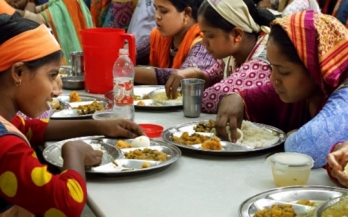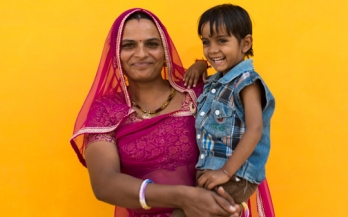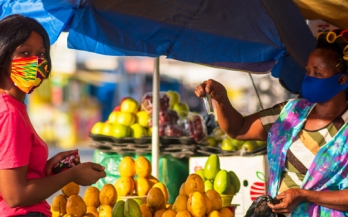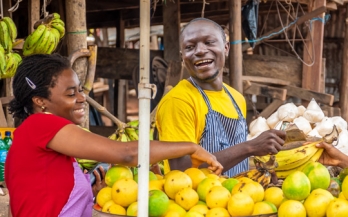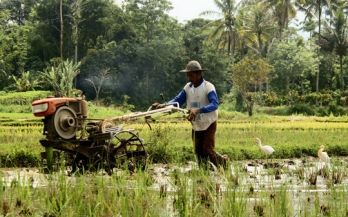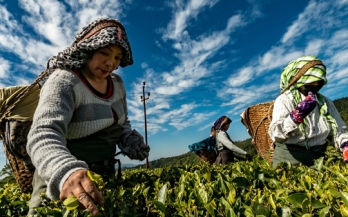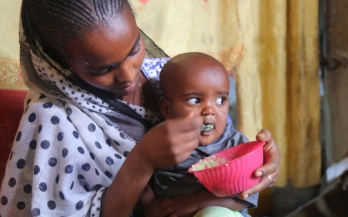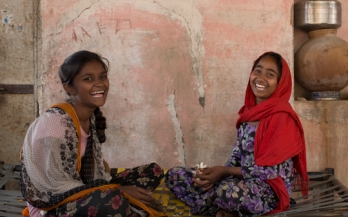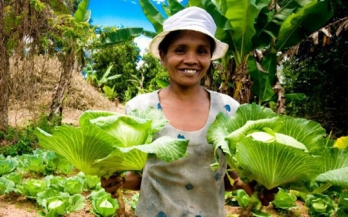One in three people worldwide suffers from malnutrition today, making it a massive global concern impacting individuals, businesses, and economies alike – in both developing and developed countries. The health impacts of COVID-19 on workforces are bringing heightened concerns to businesses worldwide.
GAIN in partnership with UNICEF is releasing a journal supplement in Nutrition Reviews, titled "Assessing nutrient gaps and affordability of complementary foods." Additionally, 18 accompanying country briefs will be published, half of which will focus on nutrient gaps and the other half on affordability.
The Global Health 5050 initiative is both daunting and impressive. Daunting because each year, the bar is raised for organisations trying to advance gender equity, whether it is about definitions and language or about turning words into action; and impressive because each year, more organisations want to take part, to benchmark themselves and to gain insights about how to do better in their programmes and in their operations.
Markets are central to any community: a place where people buy their food and other essential products, but markets are places where the COVID-19 virus can spread quickly. GAIN launched a unique initiative a communications toolkit that provides practical guidance to keep markets safe thanks to communication tools with tips tailored to customers, vendors and market authorities.
Ensuring markets provide enough nutritious and safe food to those living in poverty in low income countries is an urgent priority. Many in such markets across the world lack access to affordable foods that are safe and rich in the nutrients needed to sustain life and livelihoods.
In a blog a few days ago, I discussed a report released recently from Ceres2030, an initiative that aims to support governments to eliminate hunger while also improving diets, supporting livelihoods, and enhancing environmental sustainability by synthesising existing evidence on agricultural interventions and estimating the cost of achieving these interlinked goals by 2030
An additional USD 33 billion (60% from local citizens via taxes, 40% from official development assistance and donors) per year, from now to 2030, is needed to end hunger in a way that is sustainable for both the planet and the livelihoods of small-scale producers in low- and middle income countries.
Small and medium-sized enterprises (SMEs) shoulder responsibility for around 50% of the food production and 70-100% of food sales in sub-Saharan Africa for key foods such as fruits and vegetables, animal-source foods, and cereals and legumes. As Ethiopia’s population is swiftly shifting to more urban environments, so are food habits, with 83% of foods and beverages purchased in markets, as opposed to 47% in rural areas.
The United Nations Children’s Fund (UNICEF) and the Global Alliance for Improved Nutrition (GAIN) launched today "Food Systems for Children and Adolescents", a special issue of the international journal Global Food Security. This special collection of 11 articles calls for an urgent transformation of food systems that work for and with children.
In a time of many seemingly insurmountable challenges, there is something that we can fix. One thing, which if changed could simultaneously accelerate the end of hunger, ensure everyone has access to a healthy diet, dramatically reduce greenhouse gas emissions, reverse biodiversity loss, and make societies and economies more equitable and resistant to devastating pandemics such as COVID-19.
